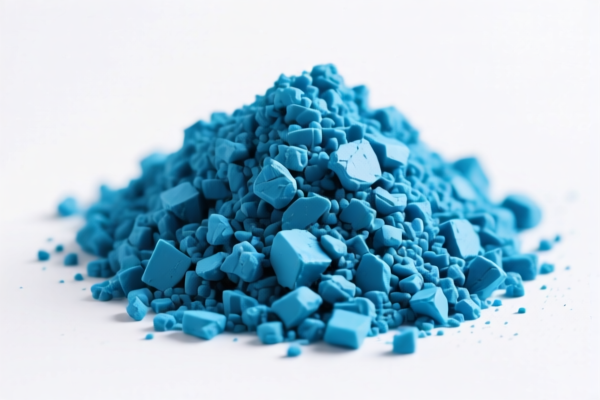| HS Code | Official Doc | Tariff Rate | Origin | Destination | Effective Date |
|---|---|---|---|---|---|
| 3902205000 | Doc | 61.5% | CN | US | 2025-05-12 |
| 3902900010 | Doc | 61.5% | CN | US | 2025-05-12 |
| 3901909000 | Doc | 61.5% | CN | US | 2025-05-12 |
| 3901205000 | Doc | 61.5% | CN | US | 2025-05-12 |
| 3901101000 | Doc | 61.5% | CN | US | 2025-05-12 |




Product Classification and Customs Tariff Analysis for Polyisobutylene Raw Material for Wires and Cables
Based on the provided HS codes and descriptions, the following classification and tariff details apply to polyisobutylene raw material for wires and cables:
🔍 HS Code Classification Overview
- HS Code 3902205000
- Description: Polyisobutylene raw material for wires and cables, classified under 3902.10.00, which refers to primary forms of polymers of propylene or other olefins.
-
Total Tax Rate: 61.5%
- Base Tariff: 6.5%
- Additional Tariff: 25.0%
- Special Tariff after April 11, 2025: 30.0%
-
HS Code 3902900010
- Description: Polybutene resin for cable applications, classified under 3902.90.00.10, which also refers to primary forms of polymers of propylene or other olefins.
-
Total Tax Rate: 61.5%
- Base Tariff: 6.5%
- Additional Tariff: 25.0%
- Special Tariff after April 11, 2025: 30.0%
-
HS Code 3901909000
- Description: Polyethylene cable material, classified under 3901.90.90, which refers to other polyethylene polymers.
-
Total Tax Rate: 61.5%
- Base Tariff: 6.5%
- Additional Tariff: 25.0%
- Special Tariff after April 11, 2025: 30.0%
-
HS Code 3901205000
- Description: Polyethylene cable material with a density of 0.94 or higher, classified under 3901.20.50, which refers to other types of polyethylene with specific density.
-
Total Tax Rate: 61.5%
- Base Tariff: 6.5%
- Additional Tariff: 25.0%
- Special Tariff after April 11, 2025: 30.0%
-
HS Code 3901101000
- Description: Polyethylene raw material for wires and cables, classified under 3901.10.10, which refers to primary forms of polyethylene polymers.
- Total Tax Rate: 61.5%
- Base Tariff: 6.5%
- Additional Tariff: 25.0%
- Special Tariff after April 11, 2025: 30.0%
⚠️ Key Tariff Notes
- Base Tariff: 6.5% for all listed HS codes.
- Additional Tariff: 25.0% applied to all.
- April 11, 2025 Special Tariff: An additional 30.0% will be imposed after April 11, 2025.
- No Anti-Dumping Duties: No specific anti-dumping duties are mentioned for this product category.
- No Special Tariffs on Iron/Aluminum: These are not applicable for polyisobutylene or polyethylene raw materials.
📌 Proactive Advice for Importers
- Verify Material Specifications: Ensure the product is indeed polyisobutylene or polyethylene and not a blend or modified polymer, as this may affect HS code classification.
- Check Unit Price and Certification: Confirm whether any certifications (e.g., RoHS, REACH, or cable-specific standards) are required for import compliance.
- Monitor Tariff Changes: Be aware of the April 11, 2025 deadline for the special tariff increase. Consider adjusting import timelines or seeking duty relief options if applicable.
- Consult Customs Broker: For complex cases, especially if the product is a blend or modified polymer, consult a customs broker or classification expert to avoid misclassification penalties.
Let me know if you need help with customs documentation, tariff calculation tools, or classification guidance for similar products. Product Classification and Customs Tariff Analysis for Polyisobutylene Raw Material for Wires and Cables
Based on the provided HS codes and descriptions, the following classification and tariff details apply to polyisobutylene raw material for wires and cables:
🔍 HS Code Classification Overview
- HS Code 3902205000
- Description: Polyisobutylene raw material for wires and cables, classified under 3902.10.00, which refers to primary forms of polymers of propylene or other olefins.
-
Total Tax Rate: 61.5%
- Base Tariff: 6.5%
- Additional Tariff: 25.0%
- Special Tariff after April 11, 2025: 30.0%
-
HS Code 3902900010
- Description: Polybutene resin for cable applications, classified under 3902.90.00.10, which also refers to primary forms of polymers of propylene or other olefins.
-
Total Tax Rate: 61.5%
- Base Tariff: 6.5%
- Additional Tariff: 25.0%
- Special Tariff after April 11, 2025: 30.0%
-
HS Code 3901909000
- Description: Polyethylene cable material, classified under 3901.90.90, which refers to other polyethylene polymers.
-
Total Tax Rate: 61.5%
- Base Tariff: 6.5%
- Additional Tariff: 25.0%
- Special Tariff after April 11, 2025: 30.0%
-
HS Code 3901205000
- Description: Polyethylene cable material with a density of 0.94 or higher, classified under 3901.20.50, which refers to other types of polyethylene with specific density.
-
Total Tax Rate: 61.5%
- Base Tariff: 6.5%
- Additional Tariff: 25.0%
- Special Tariff after April 11, 2025: 30.0%
-
HS Code 3901101000
- Description: Polyethylene raw material for wires and cables, classified under 3901.10.10, which refers to primary forms of polyethylene polymers.
- Total Tax Rate: 61.5%
- Base Tariff: 6.5%
- Additional Tariff: 25.0%
- Special Tariff after April 11, 2025: 30.0%
⚠️ Key Tariff Notes
- Base Tariff: 6.5% for all listed HS codes.
- Additional Tariff: 25.0% applied to all.
- April 11, 2025 Special Tariff: An additional 30.0% will be imposed after April 11, 2025.
- No Anti-Dumping Duties: No specific anti-dumping duties are mentioned for this product category.
- No Special Tariffs on Iron/Aluminum: These are not applicable for polyisobutylene or polyethylene raw materials.
📌 Proactive Advice for Importers
- Verify Material Specifications: Ensure the product is indeed polyisobutylene or polyethylene and not a blend or modified polymer, as this may affect HS code classification.
- Check Unit Price and Certification: Confirm whether any certifications (e.g., RoHS, REACH, or cable-specific standards) are required for import compliance.
- Monitor Tariff Changes: Be aware of the April 11, 2025 deadline for the special tariff increase. Consider adjusting import timelines or seeking duty relief options if applicable.
- Consult Customs Broker: For complex cases, especially if the product is a blend or modified polymer, consult a customs broker or classification expert to avoid misclassification penalties.
Let me know if you need help with customs documentation, tariff calculation tools, or classification guidance for similar products.
Customer Reviews
No reviews yet.